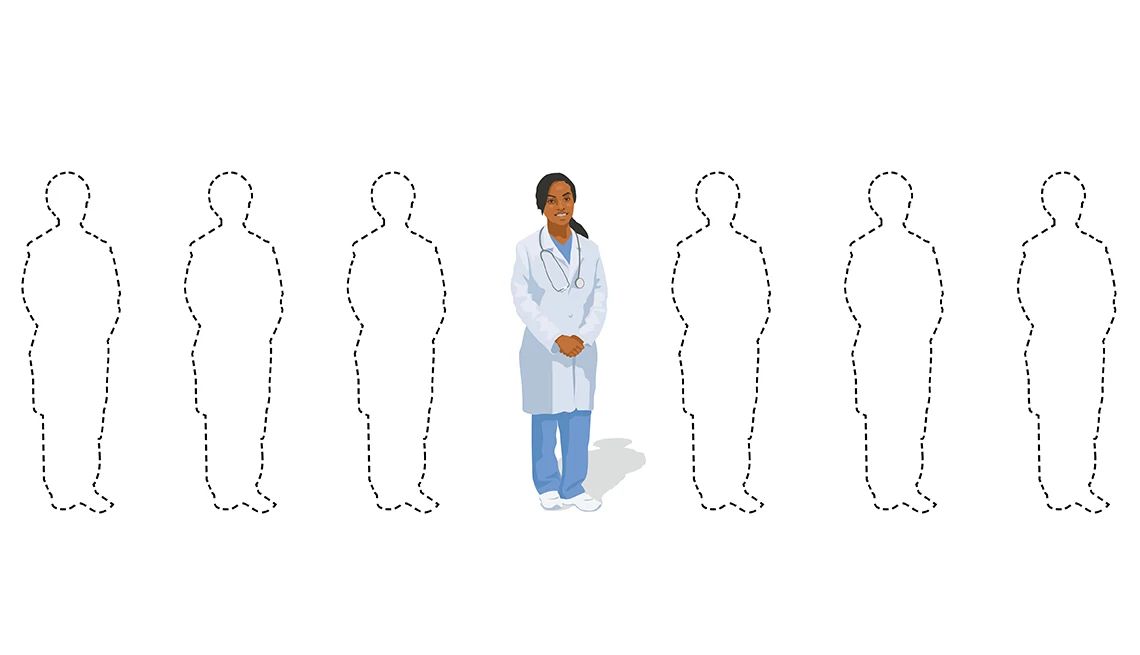Looks like they can't find one.What good are doctors if you can't afford one?
Navigation
Install the app
How to install the app on iOS
Follow along with the video below to see how to install our site as a web app on your home screen.
Note: This feature may not be available in some browsers.
More options
Style variation
You are using an out of date browser. It may not display this or other websites correctly.
You should upgrade or use an alternative browser.
You should upgrade or use an alternative browser.
UH is the answer just like in Canada
- Thread starter AzogtheDefiler
- Start date
Zincwarrior
Diamond Member
The OP's link is fundamentally biased.

 secondstreet.org
secondstreet.org

About - SecondStreet.Org
We tell stories of Canadians from all walks of life and how they’re affected – for better or worse – by government decisions.
 secondstreet.org
secondstreet.org
Canada doesn't have these HC issues then?The OP's link is fundamentally biased.
- Moderator
- #44
Make med school free.
Who works for free?
Zincwarrior
Diamond Member
Are you being intentionally naive?Who works for free?
- Moderator
- #46
Are you being intentionally naive?
I believe that was you when you said med school should be free.
TrumpWho works for free?
Doctors have given up trying to get people to take responsibility for themselves. One of things my Dad hated when I was young was allowing prescription medication to be advertised. Before then, he would decide if a patient needed a certain medication or just needed to change their lifestyle. After, people started doing exactly what the ads told them to do, "Ask your doctor for Fixitall. Yes, Fixitall will fix what ails you. Don't forget, ask for it by name and keep asking until he gives it to you". And, in small letters, "side effects may include weight gain, weight loss, stroke, heartburn, uneven hair loss, tire damage, food spoilage and ringworm". Patients would come in demanding some drug they saw advertised whether it would even apply to their situation or not.This is the one thing you almost never hear about. People complain about health care costs. They complain about the cost of carrying health insurance. They want insulin costs capped, Medicare costs capped, etc. Various politicians pander to certain segments, but the one thing you never hear them do is lecture people on how they are treating their bodies. A good chunk of medical conditions can be resolved or completely prevented if people simply stopped being lazy and took better care of themselves.
Obesity is the number one cause of a lot of chronic illnesses and it's simply due to laziness. There is no excuse for people to be morbidly obese.
My wife, a pharmacy tech, had a patient yelling at her on the phone because the insurance company required a certain BMI before they would cover a weight loss drug. She literally complained that she would have to gain weight so she could get the pill to lose weight.
Zincwarrior
Diamond Member
for the student.I believe that was you when you said med school should be free.
- Moderator
- #50
for the student.
But that doesn't make it free, does it? Someone else is paying for it. And why should just med school be "free?" Why not every other program?
Zincwarrior
Diamond Member
You asked how to retain talent, dumbass.But that doesn't make it free, does it? Someone else is paying for it. And why should just med school be "free?" Why not every other program?
No country is scrambling to change their healthcare system to be more like ours. If you are rich ours is great. If you aren't ours is the worst in the developed world.
.
- Moderator
- #52
You asked how to retain talent, dumbass.
No country is scrambling to change their healthcare system to be more like ours. If you are rich ours is great. If you aren't ours is the worst in the developed world.
.
So that means that medical students should get tuition at our expense?
In what other areas do we need to make it "free" in order to retain talent?
progressive hunter
Diamond Member
- Dec 11, 2018
- 67,473
- 42,357
- 2,615
so force the professors to teach for free??for the student.
thats called slavery,,
progressive hunter
Diamond Member
- Dec 11, 2018
- 67,473
- 42,357
- 2,615
thats still not free,,So that means that medical students should get tuition at our expense?
In what other areas do we need to make it "free" in order to retain talent?
still have to pay the profs , buildings, utilities and upkeep of the buildings,,
ninja007
Gold Member
After all what is a little death between friends? Canada had all the right answers. Great PM (ex now); Strong military. Warm climate; superb immigration policy.
51st state
except is was all planned.
ninja007
Gold Member
try waiting 2 years for an mri or a surgeryWhere Have All the Doctors Gone?
The average wait for new patients to see a physician is 26 days, and that's for mostly healthy people. In a medical emergency, the situation can become even more frightening: Twenty-two percent of acutely ill patients 65 or older who sought medical attention had to wait six days or more for an...www.insurance-forums.com
The average wait for new patients to see a physician is 26 days, and that's for mostly healthy people. In a medical emergency, the situation can become even more frightening: Twenty-two percent of acutely ill patients 65 or older who sought medical attention had to wait six days or more for an appointment
Nearly 70 million Americans on Medicare, many with chronic conditions, can expect longer waiting times for medical care.
Even being an established, well-connected doctor doesn't always help. One colleague of mine, working at a major medical center in the South, recently decided to move with his family to the Northeast. But as the process was underway, his wife was diagnosed with cancer. Even though she'd already received a diagnosis, and even though they were using the same insurance company, the insurer refused to cover her oncology treatment until she got a referral from a new primary care physician.
Despite being a prominent doctor himself, my colleague could not find a single physician willing to take his wife on as a new patient. The family was forced to go back to their previous state so his wife could receive care. Fortunately, she is doing well, but my colleague asks, "How do people do this without the connections we have?"
In reporting this story, I spoke with dozens of physicians, the vast majority of whom vented their frustrations with the current state of medicine. But just as tellingly, almost all of them also refused to talk to me on the record, fearing that speaking out could cost them their jobs.
Part of what's driving this is the growing trend of private equity firms and corporations, such as CVS Health and Amazon, purchasing hospitals and private practices. One major medical group, (that would be UHC/Optum) with about 90,000 doctors in some 2,000 locations across the country, has spent billions of dollars acquiring physician-owned practices, home health centers and surgical centers. This past April, the Physician Advocacy Institute reported that just shy of 80 percent of all doctors were employed by hospitals or corporations, up 200 percent in just over 10 years.
Physicians told me they are burned out. Simply put, they are being asked by the business world that owns their practices to do medicine, at times, in ways they view as not in the patient's best interest. Meanwhile, those who cling to their independent practices are finding it impossible to hold on given the financial pressures on them.
Millions of American workers are currently employed in health care in some capacity, many in government, for insurance companies, or in corporate oversight. But in the end, it is often doctors on the front lines, bearing the blame and anguish when diagnoses are wrong or treatments go badly.

Where Have All The Doctors Gone? | Members Only
America is facing a shortage of physicians. Here’s how you can find the care you need
www.aarp.org
Interesting article that places much of the blame on corporate ownership of provider groups yet neglects to mention UHC/Optum by name . . .
JoeB131
Diamond Member
After all what is a little death between friends? Canada had all the right answers. Great PM (ex now); Strong military. Warm climate; superb immigration policy.
51st state
Lack of Insurance to Blame for Almost 45,000 Deaths: Study - PNHP
HealthDay News Atlanta Journal Constitution THURSDAY, Sept. 17 If you doubt that lack of health insurance can have deadly consequences, consider these new findings: Americans without health insurance are 40 percent more likely to die than those with private insurance. As many as 44,789...
If you doubt that lack of health insurance can have deadly consequences, consider these new findings: Americans without health insurance are 40 percent more likely to die than those with private insurance.
As many as 44,789 Americans of working age die each year because they lack health insurance, more than the number who die annually from kidney disease.
The study comes at a pivotal moment in history, as Congress considers legislation to expand health insurance coverage. The findings imply that lack of health insurance isn’t just a policy issue, it’s a significant health risk.
Being uninsured is associated with a risk of death, “and it turns out to be an elevated risk,” said Dr. Andrew P. Wilper, lead author of the study and an instructor at the University of Washington School of Medicine in Seattle.
- Thread starter
- #58
Then they should apply for Medicare. In MA we have insurance for those who can’t afford it.Lack of Insurance to Blame for Almost 45,000 Deaths: Study - PNHP
HealthDay News Atlanta Journal Constitution THURSDAY, Sept. 17 If you doubt that lack of health insurance can have deadly consequences, consider these new findings: Americans without health insurance are 40 percent more likely to die than those with private insurance. As many as 44,789...pnhp.org
If you doubt that lack of health insurance can have deadly consequences, consider these new findings: Americans without health insurance are 40 percent more likely to die than those with private insurance.
As many as 44,789 Americans of working age die each year because they lack health insurance, more than the number who die annually from kidney disease.
The study comes at a pivotal moment in history, as Congress considers legislation to expand health insurance coverage. The findings imply that lack of health insurance isn’t just a policy issue, it’s a significant health risk.
Being uninsured is associated with a risk of death, “and it turns out to be an elevated risk,” said Dr. Andrew P. Wilper, lead author of the study and an instructor at the University of Washington School of Medicine in Seattle.
luiza
Diamond Member
After all what is a little death between friends? Canada had all the right answers. Great PM (ex now); Strong military. Warm climate; superb immigration policy.
51st state
From memory around 250 000 die every year in the US from wrong diagnosis and in 2023 the Misdiagnosed figure was around 12 million .
So get your own house in order because you are looking more and more Third World as a country.
- Thread starter
- #60
Memory? ThanksFrom memory around 250 000 die every year in the US from wrong diagnosis and in 2023 the Misdiagnosed figure was around 12 million .
So get your own house in order because you are looking more and more Third World as a country.
Your country is a caliphate
Similar threads
- Replies
- 5
- Views
- 190
- Replies
- 11
- Views
- 217
- Replies
- 0
- Views
- 119
- Replies
- 11
- Views
- 251
New Topics
-
-
Donald Trump Made Fools of the Army of Bureaucrats in Brussels
- Started by Deplorable Yankee
- Replies: 0
-
-
-
Hamas claims that they achieved victory over Israel.. Say what?
- Started by Robert W
- Replies: 4